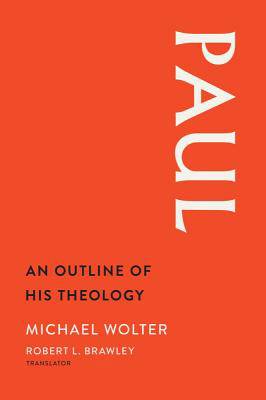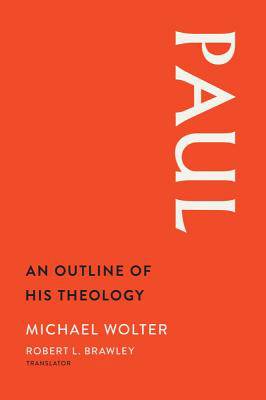
- Afhalen na 1 uur in een winkel met voorraad
- Gratis thuislevering in België vanaf € 30
- Ruim aanbod met 7 miljoen producten
- Afhalen na 1 uur in een winkel met voorraad
- Gratis thuislevering in België vanaf € 30
- Ruim aanbod met 7 miljoen producten
Omschrijving
In this newly translated volume, Michael Wolter (University of Bonn, Germany) outlines the architecture of the Apostle's theology. Wolter contends that it is indeed possible to discover Paul's core theological commitments, despite the fact that the sources for Paul's theology--his letters--are diverse, contextually dependent snapshots of the Apostle's thinking at a particular moment in time.
Wolter frames Paul's enterprise as a theology of mission and conversion--a mission that accounts for the life and preaching of Paul and a conversion that highlights the experience of Christ shared by all believers. Pauline theology finds expression in the phrase "faith in Christ," which refers to the complete reorientation and exclusive new identity of the Christian.
Wolter places Paul's theology into a narrative context, often referred to by Paul himself, that emphasizes the time before Paul's conversion, Paul's encounter with the risen Christ, and the complex events leading to the Antioch incident. Wolter then explores the theology of Paul's Gospel and the response to this good news--faith--before detailing eleven interlocking and overlapping elements of Paul's thought.
Wolter's outline successfully delineates a theology common to all of Paul's letters, and does so without collapsing the texts into a timeless whole. By using the language of Paul himself, Wolter reveals the unity of Paul's theology while simultaneously unpacking it via categories drawn from modern scholarship. Wolter's Paul is as vibrant as it is careful--as compelling as it is relevant.
Specificaties
Betrokkenen
- Auteur(s):
- Vertaler(s):
- Uitgeverij:
Inhoud
- Aantal bladzijden:
- 492
- Taal:
- Engels
Eigenschappen
- Productcode (EAN):
- 9781481304160
- Verschijningsdatum:
- 1/11/2015
- Uitvoering:
- Hardcover
- Formaat:
- Genaaid
- Afmetingen:
- 150 mm x 231 mm
- Gewicht:
- 780 g

Alleen bij Standaard Boekhandel
Beoordelingen
We publiceren alleen reviews die voldoen aan de voorwaarden voor reviews. Bekijk onze voorwaarden voor reviews.











